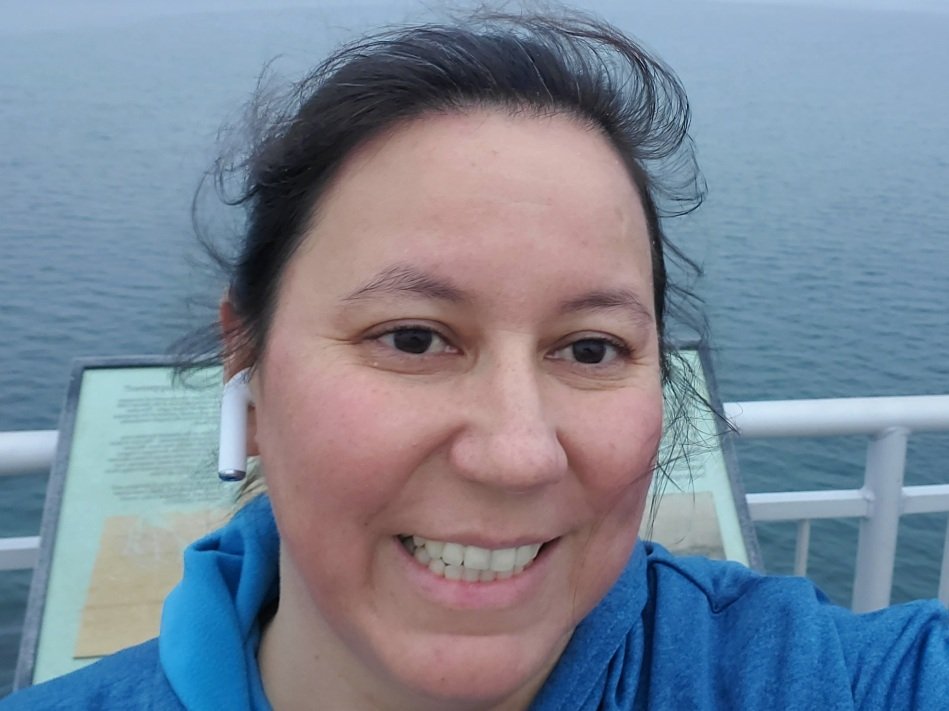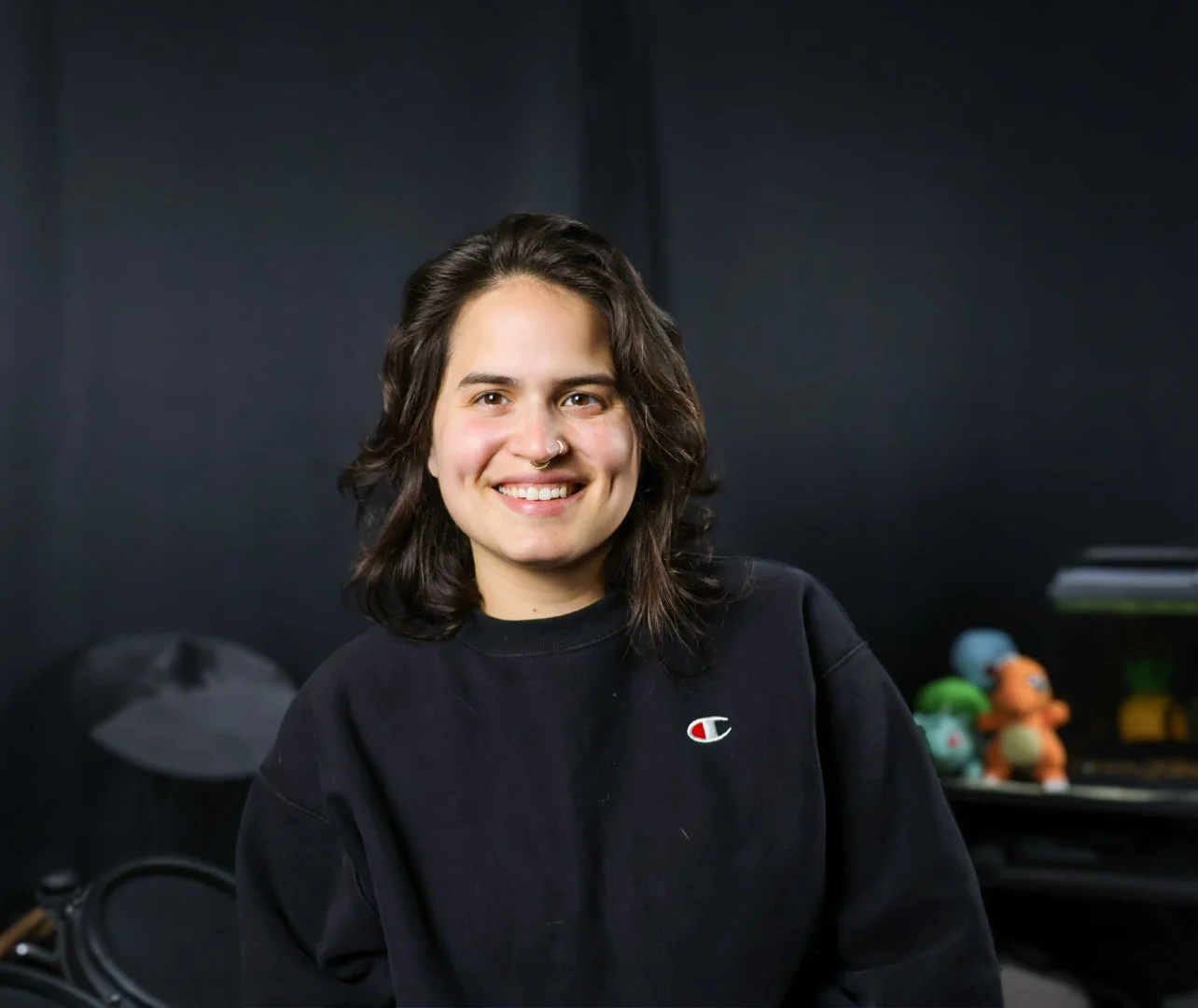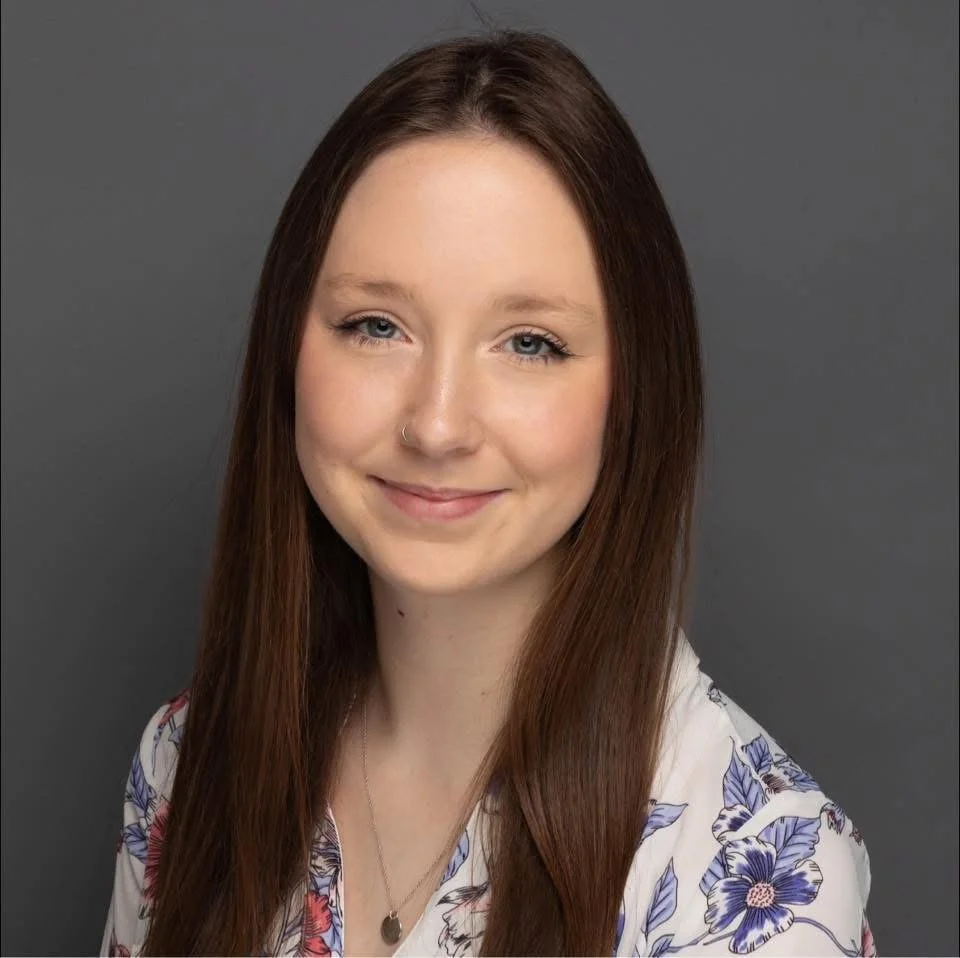Meet the Steering Committee!
The SWMS Steering Committee (colloquially known as “Big SWMS”) coordinates professional development events and activities for SWMS members at the international level. The Steering Committee is made up of volunteer early-career scientists from across the US.
Interested in joining the Steering Committee? We hold elections for open positions every spring! Check out our Elections page to learn more!
-
University of Maryland Eastern Shore
Chapter Co-Liaison
Kayle is a Coastal Climate Specialist with the University of Maryland Sea Grant Extension Program and resides on the Eastern Shore of Maryland. She received a PhD in Marine, estuarine and environmental science at the University of Maryland Eastern Shore where she focused on marine benthic macroinvertebrates community structure in the Maryland coastal bays. She received her M.S. in Natural Resources with a focus on fisheries conservation and management and her B.S. in Environmental Science with a focus in ecology, both from the University of Arizona. Before moving to Maryland for her PhD program, she was an Education and Outreach Specialist at the Biosphere 2, and she loves to share science with folks of all ages. Her research interests include community ecology within aquatic systems, food web ecology, marine ecotoxicology, equity in STEM and coastal impacts of climate change. Most recently, she is interested in behavior change in ocean conservation and environmental justice in coastal communities. She is excited to continue working with SWMS and expanding her water network and would love to connect with SWMS folks with similar research interests, avid readers and sci-moms!
-
University of Delaware
Mentorship Co-chair
Tia is a Ph.D. student majoring in chemical oceanography at the University of Delaware (UD). Her research primarily focuses on identifying the sources and controlling factors of organic chemicals (including potential pollutant and contaminations) present in Delaware’s water bodies and aims to develop a conceptual model to predict organic chemical variations in estuarine and coastal water systems. She earned a B.S. degree with dual majors in Chemistry and Secondary Science Education from the University of Maryland – College Park, where she worked as research assistant to assessed biosolid standards of wastewater treatment plants and investigated the effects of saltwater intrusion on coastal agricultural soils. She began her involvement as a co-chair of UD SWMS chapter and now is excited to work with main SWMS chapter to further develop a dynamic and supportive society. To find out more about Tia, see her personal website: https://tianyinouyang.weebly.com!
-
Gulf of Mexico Coastal Ocean Observing System
Clerk/Secretary
Megan is a marine biologist and data scientist working with cetaceans in the Gulf of Mexico. She grew up with a fascination and love for all things to do with the ocean. Megan received a B.S in Marine Science and Biology from the University of Miami, where she worked in the Cnidarian Immunity Lab studying cell apoptosis and regeneration. She interned with the Namibian Dolphin Project, which solidified her love for cetaceans, before receiving an M.S in Marine Biology from Texas A&M Galveston where her research focused on using acoustics to identify cultural transmission in cetaceans. Megan researched dolphins and whales in California as well as working in science education. Currently, she is the marine mammal biologist and data scientist for the Gulf of Mexico Coastal Ocean Observing System (GCOOS) where she is working on the CETACEAN project to consolidate marine mammal data and identify the threats facing them after the Deepwater Horizon oil spill. In her spare time Megan enjoys traveling and spending time on the water. Megan is passionate about building connections and networks for women in science.
-
University of Central FloridaChapter Co-Liaison
As an advocate for marine conservation and climate action, Mercedes Pinzón has embarked on a transformative journey shaped by hands-on research and impactful leadership roles. Beginning with her undergraduate studies in Coastal Environmental Sciences at Louisiana State University (LSU), Mercedes explored research projects investigating climate change's impact on coastal wetlands. During her master's studies in oceanography, Mercedes researched quantifying changes in nutrient loading rates in salt marshes ecosystems, contributing valuable insights to coastal restoration techniques. Mercedes's current pursuit of a PhD in Integrative and Conservation Biology at the University of Central Florida focuses on investigating the interaction of various climate change factors on mangrove migration patterns in northern Florida. Also, she participated as a Panamanian young negotiator at the 28th Conference of the Parties (COP28) from the United Nations Framework Convention on Climate Change following the adaptation to climate change agenda. Combining rigorous research endeavors with proactive student leadership roles, Mercedes is dedicated to driving positive change in the fight against climate change and marine ecosystem degradation.
-
Massachussetts Division of Marine Fisheries
Treasurer
Tessa Peixoto is an American Brasilian that has a passion for ecological restoration and science communication. With a bachelors degree in marine science from Northeastern University, she has published research in the armor morphology of a benthic fish species, led educational programs in museums, and developed trainings in workforce development. Her eclectic career path has led her to a seasonal position with Massachusetts Division of Marine Fisheries which exposed her to the world of ecological restoration and the use of nature based solutions (NBS) in climate change resiliency. You can say she is now officially hooked on seagrass and other now NBS initiatives. With this newfound direction, she has been pursuing opportunities in that area both in research and in science communication. As the treasurer, Tessa is committed to uplifting the marine science community and finding opportunities for them to network, connect, and learn!
-
Nova Southeastern University
Community Engagement Officer
Kiley Jillisky is a master’s student in Marine Sciences at Nova Southeastern University, researching visual anatomy and ecology in hydrothermal vent crustaceans. She has completed Lehigh University’s TEM course, shark research training with Field School, and a month-long research cruise along the Mid-Atlantic Ridge. She holds a B.S. in Marine Sciences from Coastal Carolina University, where she worked on projects involving coastal biogeochemistry, shark ecology, and salt marsh biodiversity. A former Social Chair of TriBeta Honor Society, Kiley now serves as the Community Engagement Officer for SWMS, where she focuses on building partnerships to support and elevate women in marine science.
-
IBSS Corporation
President
Katie is a habitat analyst at IBSS Corporation, using habitat suitability models to predict how fisheries on the east coast will be impacted by climate change. Broadly, Katie is interested in impacts of physical oceanography on bio-physical interactions, food web ecology, and marine species biogeography. Her work has examined the role of physical oceanography and krill behavior on Antarctic krill distributions in the West Antarctic Peninsula, and the role of physical oceanographic features in baleen whale distributions in the New York Bight. Katie got her B.S. in Marine Science from Northeastern University in 2017 and her Ph.D. in Oceanography from University of Delaware in 2022. During her time at UD, she co-lead the UD SWMS chapter and coordinated the DelMarVa SWMS symposium with current president Tricia! She excited to work with SWMS on a larger scale to share the research and stories of our members! You can find her Twitter at @klgallagherphd and online on her website.
-
NOAA Integrated Ocean Observing SystemVice President
Breanna Vanderplow recently completed her Ph.D. in Oceanography at Nova Southeastern University, where her research focused on modeling sea spray at the air-sea interface under tropical cyclones. She earned a dual B.S. in Marine Biology and Biology, with a minor in English, as well as her M.S. in Marine Science, both from Nova Southeastern University. She also serves as the co-founder and president of the SWMS chapter at her alma mater. Breanna recently started a position as a physical scientist in support of the NOAA Integrated Ocean Observing System Office, where she is working to build relationships and foster collaboration between academic, industry, and government partners in the ocean modeling community. Beyond her love for ocean science, Breanna enjoys traveling, cooking, volunteering, and going on adventures with her dog Miso. Breanna is passionate about the importance of inclusion and communication in ocean sciences and can’t wait to be a part of the SWMS Steering Committee!
We are incredibly thankful to all of our former Steering Committee Members who have helped make SWMS what it is today!
Check out our former SC members here!









